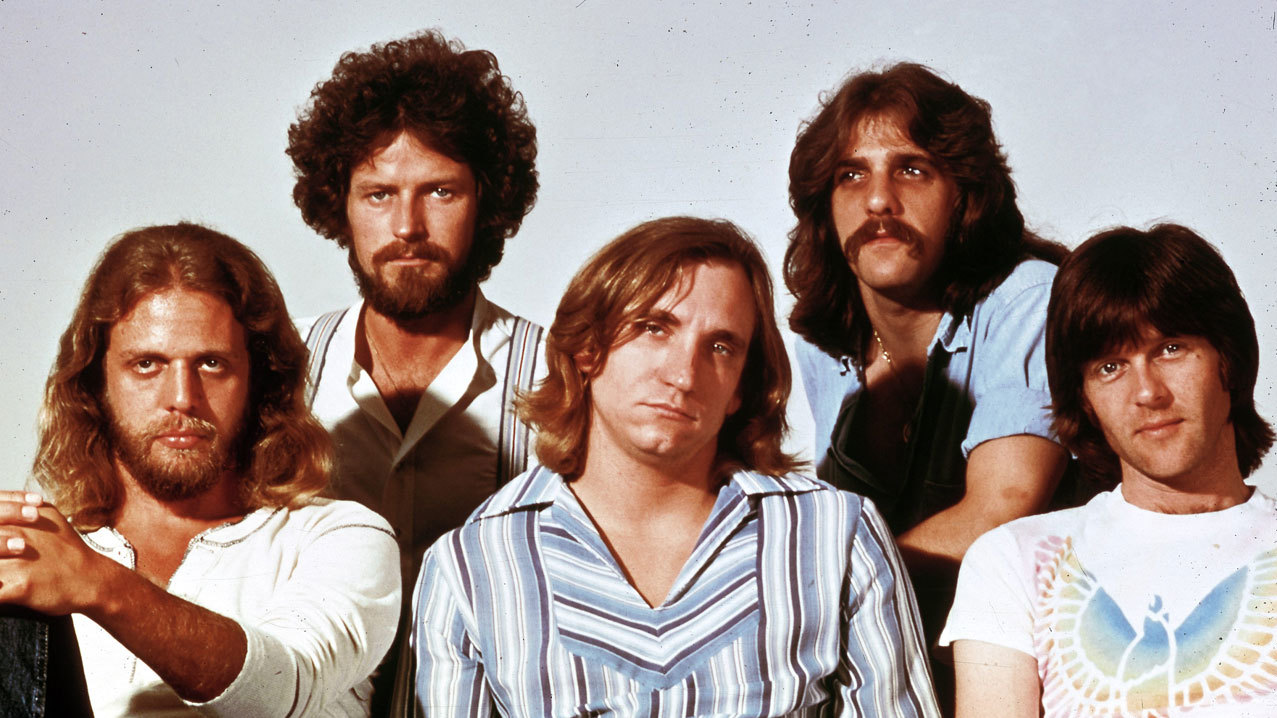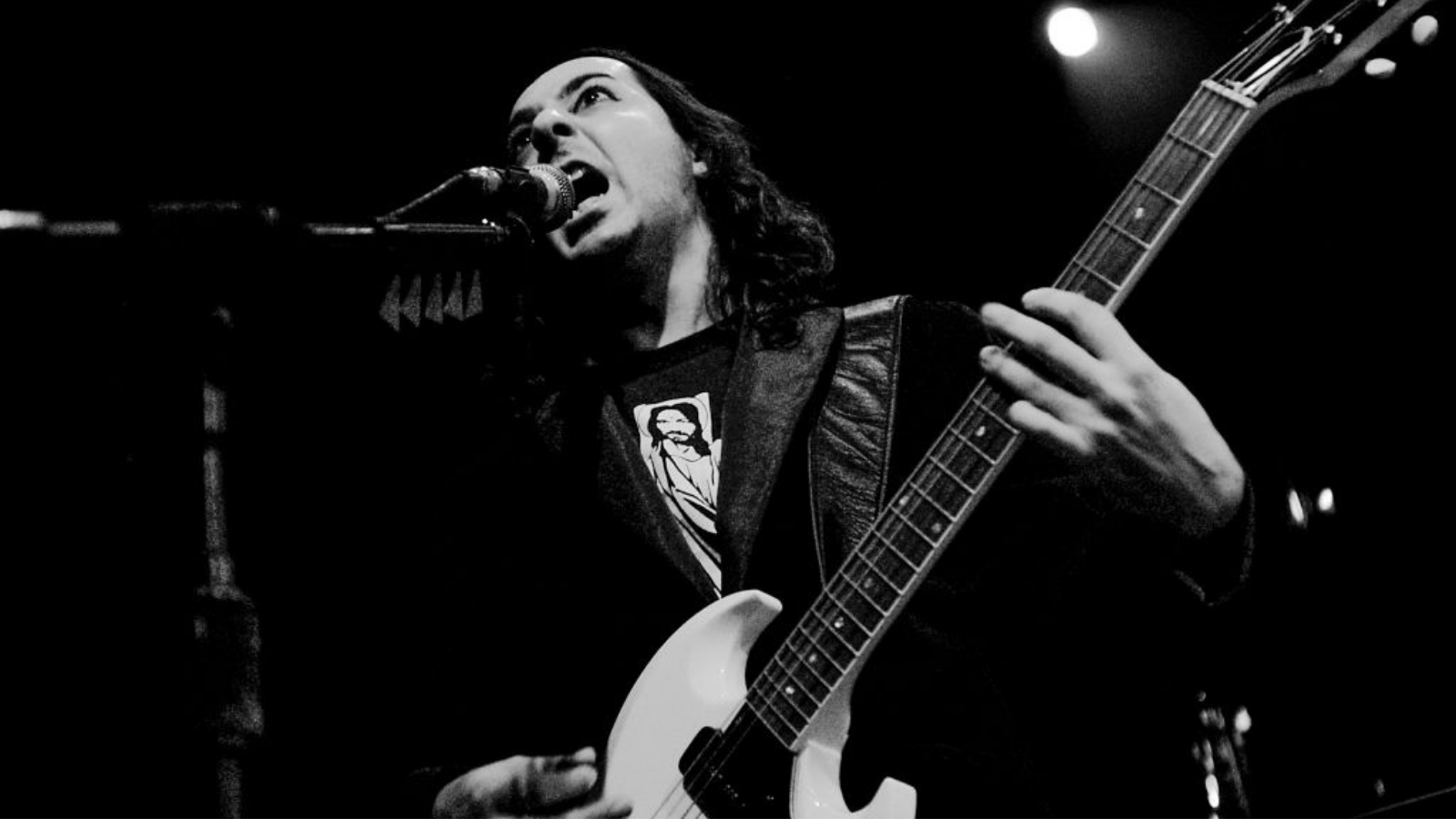Every Song On The Eagles’ Hotel California Ranked From Worst To Best
There's very little you can say about The Eagles' era-defining Hotel California that hasn't already been said. But you can rearrange it so it gets better the longer it plays

Hotel California was released on December 8, 1976, two weeks after The Sex Pistols’ Anarchy In The UK. You couldn’t get two records more diametrically opposed. Or could you? At the time, punk seemed designed to blow the likes of Eagles and their mellow country-rock vibes clean out the water.
But closer inspection of their fifth studio album - the era’s leading blockbuster MOR behemoth, along with Fleetwood Mac’s Rumours - revealed a band disillusioned by political and social developments, moved to offer a critique of commercialism and excess.
You want punk? These five “middle-class kids from the Midwest” (Don Henley) came not to pursue the west coast myth but to bury it. It might have been the epitome of carefree freeway rock, but Hotel California was a dark affair, and certainly melancholy for a mega-seller (to date, 32 million sales and counting).
If Rumours detailed the breakdown of relations within the Mac, Hotel California dissected the demise of the hippie dream, dismantling the notion of LA as some sun-kissed Utopia. That it sold in such vast quantities says a lot about 1976 listeners’ desire for a dose of realism from their rock’n’roll, even if the large majority would rather the delivery system be mellifluous acoustic-electric soft rock than raucous punk.

9. Victim Of Love
It is a trope often applied to famous albums: “Every track could have been a single.” Not sure how this plodding rocker would have fared in the charts. It was an attempt to prove Eagles weren’t just slaves to overdubbing and multitracking; that the band could play live, which is how it was recorded in the studio. They should have paid more attention to the song’s actual construction.
Still, if any track captured the small-“p” political nature of life in the Eagles, it was Victim Of Love. Guitarist Don Felder apparently came up with the idea for the song and wanted to sing it; indeed, he was promised it as his one lead vocal on the album. But it didn’t meet the band’s exacting standards, and so manager Irving Azoff took him out for a meal while Don Henley sang what would be the final version. So if anyone was the “victim” here, it was Felder.
8. New Kid In Town
Written by Don Henley, Glenn Frey and JD Souther, this (“Johnny-come-lately, the new kid in town”) could almost have been written about the Eagles themselves: the arrivistes of the country-rock scene, years after Gram Parsons et al pioneered that particular paradigm, cleaning up commercially with a cleaned-up version of the sound.
Sign up below to get the latest from Classic Rock, plus exclusive special offers, direct to your inbox!
Actually, it wasn’t about supplanting the originals, it was about being usurped themselves; a continuation of the cowboy imagery of 1973’s Desperado album, and the fear of being outmanoeuvred by a younger, faster gun. Which all sounds very exciting until you hear the music, which a bit like Showbiz Kids by Steely Dan on industrial-strength Mogadon.
7. Try And Love Again
Bassist Randy Meisner’s vocal moment in the sun is one of several rocky ballads on Hotel California, although it’s not quite in the Take It To The Limit/One Of These Nights league.
The phrase “all killer, no filler” was not coined for this album. Although to be fair, there is a consistency of mood on Hotel California, which is some achievement considering there are eight songwriters and four singers variously taking lead.
- The Eagles albums ranked from worst to best
- Every Song On Pink Floyd's Dark Side Of The Moon, Ranked From Worst To Best
- The Eagles: "It's a record about the dark underbelly of America"
- Every song on Fleetwood Mac's Rumours, ranked from Worst to Best
6. Life In The Fast Lane
The original running order of the album was designed to tell the story mapped out by the overarching LP concept: you’re ushered into the Hotel California as the New Kid In Town, at which point you start enjoying Life In The Fast Lane and a bunch of Wasted Time before becoming a Victim Of Love, and so forth.
Joe Walsh’s best-known contribution to Hotel California had more value as a key part of the narrative than as a song in and of itself: this was lite boogie, albeit with a hugely memorable guitar riff, that attacked bourgeois decadence with a smiling venom worthy of Johnny Rotten himself, although the fact that Eagles were mired in moral decay themselves somewhat undercut the potency of the message.
5. Pretty Maids All In A Row
The notion that Walsh was solely drafted in to beef up their sound and afford them some credibility among the serious rock fraternity who dismissed Eagles as purveyors of faux, wimpy country is disabused by this sombre ballad, co-penned by Walsh and Joe Vitale, one that moves at a waltz pace.
Interesting how quickly Walsh became infected by the atmosphere of sorrow in the band. “Why do we give up our hearts to the past/And why must we grow up so fast?” - it’s a corny rhyme, but it works, given the aching chords and sparse arrangement. The inevitable guitar solo gives it some grit, some ballast.
4. Hotel California
The title track’s relatively lowly position here is partly the corollary of its ubiquity: you’ve heard it so many times, you almost don’t need to hear it again. Plus: country reggae, anyone? Has there ever been such an unlikely collision of opposites in a single song?
Then again, have there ever been two lines - “On a dark desert highway, cool wind in my hair” - so evocative of a place and milieu? This is the dark side of the California dream writ large.
Hotel California was to mainstream US radio what Bohemian Rhapsody was to the UK variety - the ostensibly overlong number that broke the mould and forced programmers to indulge the artists’ creative whims despite the restrictive (three-minute) format. Oh, and the guitar solo’s not bad.
3. Wasted Time (Reprise)
This is a lush, all-strings reprise of the ballad Wasted Time. Its sweeping grandeur would have made it the ideal instrumental coda to a Hollywood movie based on the album. If Eagles (and orchestrator Jim Ed Norman) wanted to compose a requiem for a dead affair - one, say, between a band and an idyll that turns out to be as illusory as any relationship - this would have been just perfect.
2. The Last Resort
“They called it Paradise - I don’t know why,” sings Henley on this, the album closer, distilling the disillusion and despair that courses through the whole album. Which kind of begs the question: how depressed would they have been if their careers had gone badly?
Intimations and images of decay abound in this allegory about environmental catastrophe (only five years after The Beach Boys’ Don’t Go Near The Water) and the death of innocence. “Some rich man came and raped the land… put up a lot of ugly boxes.”
At which point you might find yourself shouting at the stereo at the sheer hypocritical effrontery of it all as these jet-setting multimillionaire debauchees have their cake - in vast quantities, by all accounts - and eat it, too. But you forgive it all because, dammit, the music’s so pretty.
1. Wasted Time
Forget country: you could pen a credible thesis about Eagles being a great soul band, and this - like One Of These Nights before it and I Can’t Tell You Why after - is a superb R&B ballad just made for Don Henley’s honeyed, husky tones.
It’s one of the many ironies about Eagles - the middle-class heroes of blue-collar good ol’ boys - that these scions of summer good-times music were able to so adroitly capture the exquisitely sad onset of autumn. Producer Bill Szymczyk keeps things the right side of schmaltzy as Henley evokes end-of-an-era innocence like there’s no tomorrow. Which, according to this album, there won’t be.
Paul Lester is the editor of Record Collector. He began freelancing for Melody Maker in the late 80s, and was later made Features Editor. He was a member of the team that launched Uncut Magazine, where he became Deputy Editor. In 2006 he went freelance again and has written for The Guardian, The Times, the Sunday Times, the Telegraph, Classic Rock, Q and the Jewish Chronicle. He has also written books on Oasis, Blur, Pulp, Bjork, The Verve, Gang Of Four, Wire, Lady Gaga, Robbie Williams, the Spice Girls, and Pink.

